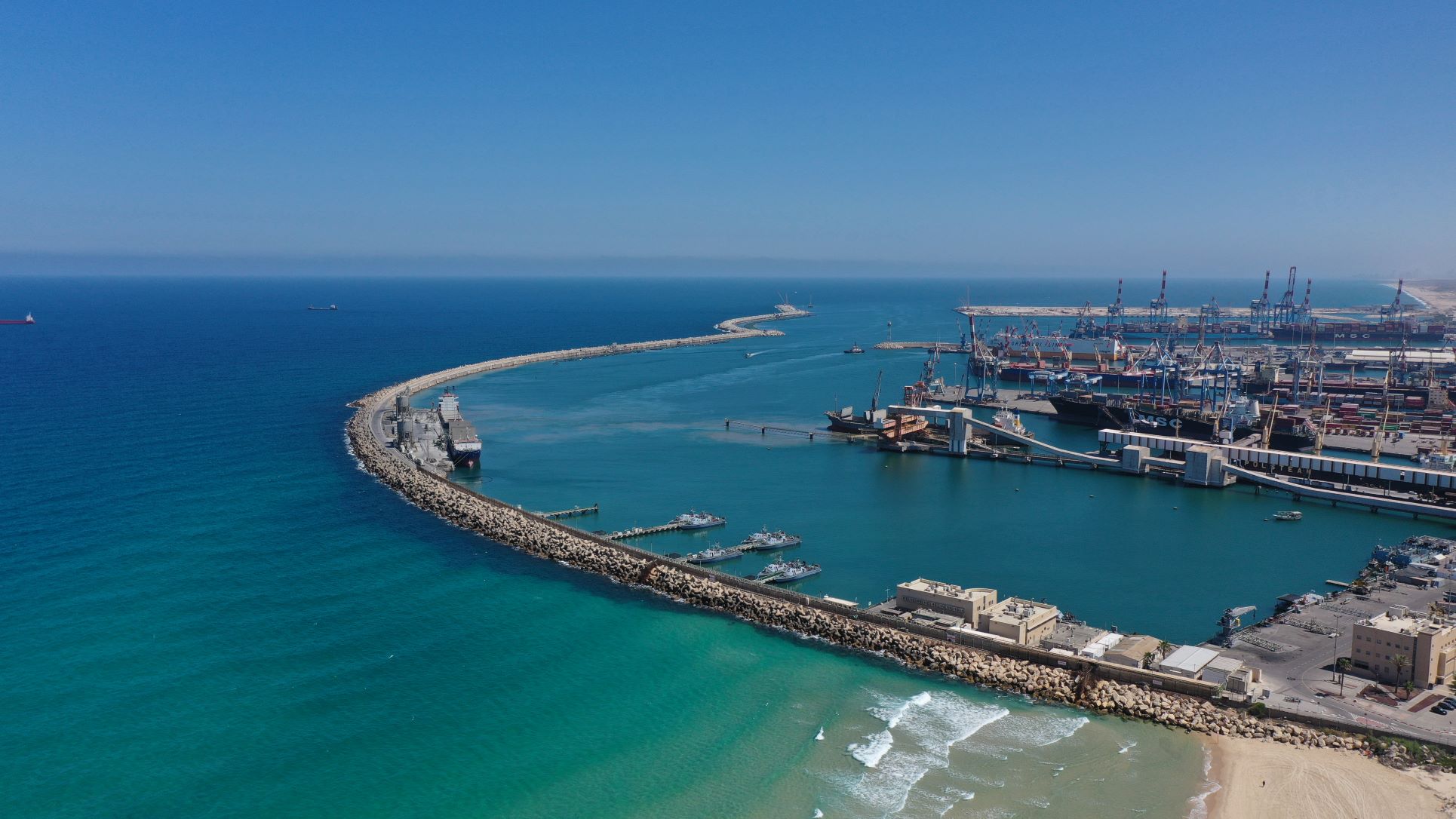 In addition to handling the largest volume of cargo containers in Israel, the Port of Ashdod is committed to empowering start-ups. (GettyImages)
In addition to handling the largest volume of cargo containers in Israel, the Port of Ashdod is committed to empowering start-ups. (GettyImages)
Ashdod Port start-up strategy
The Israeli port relies on start-up incubators to turn cutting-edge solutions into scalable products. Roy Avrahami, its Director of Innovation, explains in this interview why the Port of Ashdod has chosen this path to boost innovation.
 In addition to handling the largest volume of cargo containers in Israel, the Port of Ashdod is committed to empowering start-ups. (GettyImages)
In addition to handling the largest volume of cargo containers in Israel, the Port of Ashdod is committed to empowering start-ups. (GettyImages)
Ashdod Port (Hebrew: נמל אשדוד) is one of the three main cargo ports in Israel. It is located in Ashdod, about 40 kilometres south of Tel Aviv, at the mouth of the Lachish River. With its creation, the country's port capacity has considerably increased, and it now handles the largest volume of containerised cargo annually, with 1.6 million TEU in 2021.
However, more than for its commercial capacity, the Israeli port is characterised by its firm commitment to innovation, which is materialised through various initiatives promoted, particularly, in the last two years. These are centred on promoting, supporting, investing and making a bet on start-ups as partners in their goal towards innovation. Israel is, after all, known for being the 'start-up nation'.
A technology incubator for the Israeli port industry
In early 2021, the Port of Ashdod established an incubator to promote innovative technologies in the port and maritime sector. Within the framework of the incubator, the port will support the development and consolidation of start-ups from the concept stage, providing them with the optimal infrastructure and conditions to turn their idea into a scalable product.
The technology incubator enables entrepreneurs to understand the needs of the international port market and provides them with the expertise of professionals with extensive knowledge in the field who accompany the start-ups on this journey.
As the process progresses, the port will position itself among the investors and owners of the start-ups, helping them to sell the product or service they offer to ports and shipping companies around the world. Thus, the port of Ashdod aims to become the most technologically advanced port in the region.
The focus of the startups already operating in the port is on predicting future workloads through artificial intelligence, Machine Learning that can track and predict changes in the seabed in order to achieve optimal cargo loads, increase vessel safety, reduce navigational risks, and lower maintenance costs of port infrastructure. A third focuses on cyber security.
Roy Avrahami, Director of Innovation at the Port of Ashdod, explains that “the risk we are most concerned about is potential attacks on key national infrastructures that are controlled remotely. That's why we work closely with Israel's National Cyber Directorate General and at the moment we have 11 cyber security companies working with us. So while we are very much in favour of technology, we have to be cautious and do all the relevant checks from a security point of view," he says.
In early 2021, the Port of Ashdod established an incubator to promote innovative technologies in the port and maritime sector
Blue Ocean for Startups in Ashdod
In 2022, The Port of Ashdod and 500 Global, a venture capital firm with more than $2.7 billion in assets under management that invests in fast-growing technology companies, have launched an accelerator programme with 14 startups with solutions in cybersecurity, energy, port operations, logistics and shipping.
"Eighty-five per cent of global cargo moves by sea. Until now, there was not much technology for this sector, which is why we say it is a 'blue ocean' for startups. Our accelerator works with 500 start-ups around the world.If we manage to solve the port's problems we will probably be able to export this solution to other ports and then implement it in other industries," explains Avrahami.
Upon completion of the 12-week programme, selected companies have the opportunity to participate in a proof of concept over the course of five to six months that may lead to future collaborations with the port, including potential equity investment opportunities.
"We need to put ourselves in the shoes of the start-ups and provide the ecosystem necessary for them to find investment and customers. The pandemic has taught us that the solutions to the challenges we face often require collaboration and come from the connections that are made in these environments," he says.

Preparing employees for change
To ensure the success of the technology integration process of the start-ups, another initiative of the Port of Ashdod is to train its employees as 'innovation agents'.
This means that they will become technology integrators and will have the opportunity to become entrepreneurs and to propose which problems can be solved, either by the port or through start-ups, which the port will help to establish.
Innovation 'embassies': Ashdod-Newark-Barcelona
The Port of Ashdod also collaborates with other institutions and ports to establish so-called 'innovation embassies' that promote the growth of the sector and enable the sharing of knowledge, experience and best practices.
"Our view is very holistic. We have to think about the global supply chain, our customers, shipping lines and other international ports and try to communicate with each other, but first we need to share the same language," says Avrahami.
The first agreement was signed in November with Newark Port and New Jersey City University to open an innovation embassy in New Jersey. The memorandum of understanding includes joint projects and academic research, university student exchange programmes and collaboration in the areas of economics and business development, among others.
The Port of Ashdod's innovation embassy is located at the university, which will share its academic resources with the port, in addition to developing joint academic programmes and opportunities for students.
The second is signed this September with the Port of Barcelona. In this case, start-ups will play a leading role, as the Israeli port's Director of Innovation affirms:
"We have a lot of information on technology in the maritime field and we want to establish with Barcelona our second innovation embassy, which essentially means that we will import and export start-ups so that both ports share their knowledge," concludes Avrahami.





